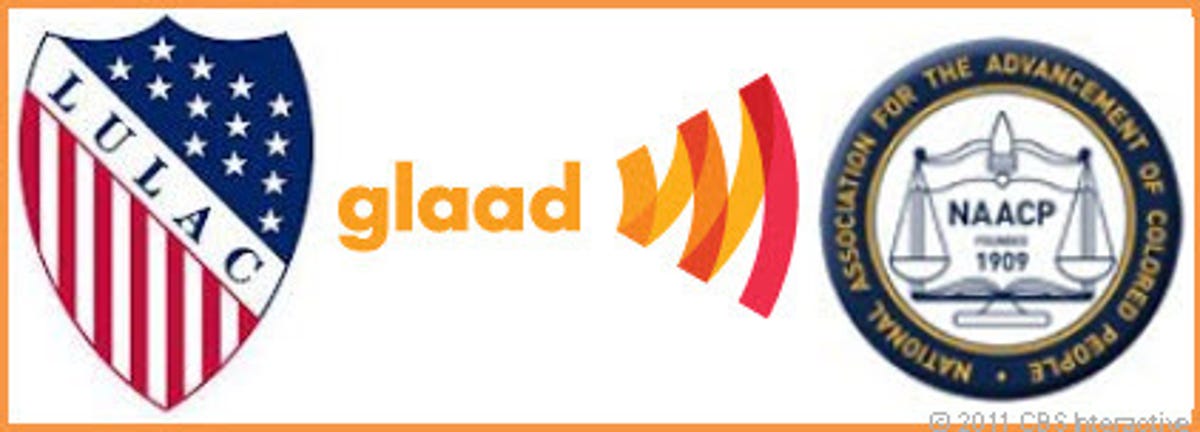From the outset, it appeared that AT&T had all the political elbow grease it needed to complete its ultimately failed takeover of rival carrier T-Mobile.
Yet pressure from Sprint, the Department of Justice (DOJ), antitrust interests, and finally the Federal Communications Commission (FCC) had AT&T fighting to revise the terms of its buyout proposal. Today, after a nine-month drama of diminishing opportunities to pass the merger, AT&T finally threw in the towel.
Although the deal may have been doomed for some time, early signs pointed to AT&T pocketing T-Mobile’s assets. It had the cash ($39 billion, to be precise), the support of T-Mobile parent company Deutsche Telekom, and good friends in the form of lawmakers and policy advocates of all levels.
Here’s an overview of some of the most notable supporters (and detractors) of AT&T’s acquisition with T-Mobile.
Congress
As of June, 76 of approximately 200 democrats in the House of Representatives supported AT&T’s annexation of T-Mobile for the sake of hurrying along the carrier’s widespread deployment of 4G LTE.


Kent German/CNET
A group of 15 House democrats even went as far as drafting a letter asking President Obama to intercede with the Justice Department on AT&T’s behalf.
Back in August, House Representative Lamar Smith (R-Texas) spoke out against anti-merger arguments that told “only one side of the story.” Creating jobs and encouraging innovation among a smaller cast of wireless competitors were two benefits Smith cited.
Meanwhile, Sen. Herb Kohl (D-Wis.), leader of the Senate Judiciary Antitrust Subcommittee, spoke out against the merger on the grounds that it would stifle competition. Other lawmakers–like Reps. John Conyers (D-Mich.), Anna Eshoo (D-Calif.), and Ed Markey (D-Mass.)–went on record to question a “troubling backward step” that could lead to “a duopoly in the wireless marketplace.”
State governors
27 state governors went on record to support the merger, ranging from Arizona to West Virginia. All wrote letters to the FCC from May to August, 2011 spelling out how consolidating the No. 2 and No. 4 U.S. wireless carriers would benefit their constituents. Most justifications echoed AT&T’s own–chiefly fewer dropped calls and expanded network coverage, especially to rural or more tucked-away communities. Again, speedier LTE deployment across the U.S. was another cited perk. (See the chart at the end for the complete list of governors in favor of the merger.)
Attorneys general
The attorneys general of 11 states submitted a joint letter to the FCC on July 27 to cast their lot with AT&T: Arkansas, Alabama, Georgia, Kentucky, Michigan, Mississippi, North Dakota, South Dakota, Utah, West Virginia, and Wyoming.
Although support was strong in AT&T’s favor, as in all levels of politics, there was also a strong current of dissent. In March, New York Attorney General Eric Schneiderman revealed his intentions to review AT&T’s proposal with an eye on competition. More recently, on September 16, the attorneys general of California, Illinois, Massachusetts, New York, Ohio, Pennsylvania, and Washington submitted their opposition to the FCC.


Composition by Jessica Dolcourt/CNET
Advocacy groups
A diverse group of advocacy organizations also took AT&T’s side. The Communication Workers of America, a union of telecommunications workers, estimated that buying up T-Mobile would generate 100,000 new jobs. (AT&T estimated that it could create 5,000.) Other groups included the NAACP, GLADD, and the Sierra Club.
Governors in favor
table.geekbox th{background-color:#99CCFF;text-align:left;font-weight:bold;}
table{width:100%;}
table.geekbox tr.even{background-color:#CCCCCC;}
.ratingGood{color:#093;} .ratingAverage{color:#666;} .ratingBad{color:#C00;}
| Action taken? | Who sent it? | Date | |
|---|---|---|---|
| Alabama | Letter to FCC (All letters are in PDF format) | Gov. Robert Bentley (R) | June 14 |
| Arizona | Letter to FCC | Gov. Jan Brewer (R) | June 20 |
| Arkansas | Letter to FCC | Gov. Mike Beebe (D) | May 23 |
| Colorado | Letter to FCC | Gov. John Hickenlooper (D) | May 27 |
| Connecticut | Letter to FCC | Gov. Dannel P. Malloy (D) | June 10 |
| Delaware | Letter to FCC | Gov. Jack Markell (D) | June 8 |
| Florida | Letter to FCC | Gov. Rick Scott (R) | June 22 |
| Georgia | Letter to FCC | Gov. Nathan Deal (R) | May 17 |
| Idaho | Letter to FCC | Gov. C.L. Otter (R) | May 17 |
| Iowa | Letter to FCC | Gov. Terry Branstad (R) | May 26 |
| Kentucky | Letter to FCC | Gov. Steve Beshear (D) | May 26 |
| Louisiana | Letter to FCC | Gov. Bobby Jindal (R) | May 19 |
| Maine | Letter to FCC | Gov. Paul LePage (R) | May 19 |
| Maryland | Letter to FCC | Gov. Martin O’Malley (D) | June 20 |
| Michigan | Letter to FCC | Gov. Rick Snyder (R) | May 19 |
| Missouri | Letter to FCC | Gov. Jay Nixon (D) | August 12 |
| Nevada | Letter to FCC | Gov. Brian Sandoval (R) | May 27 |
| North Carolina | Letter to FCC | Gov. Beverly Perdue (D) | May 31 |
| North Dakota | Letter to FCC | Gov. Jack Dalrymple (R) | July 1 |
| Ohio | Letter to FCC | Gov. John Kasich (R) | June 9 |
| Oklahoma | Letter to FCC | Gov. Mary Fallin (R) | May 16 |
| South Carolina | Letter to FCC | Gov. Nikki Haley (R) | May 21 |
| South Dakota | Letter to FCC | Gov. Dennis Daugaard (R) | June 20 |
| Tennessee | Letter to FCC | Gov. Bill Haslam (R) | May 27 |
| Texas | Letter to FCC | Gov. Rick Perry (R) | May 25 |
| Vermont | Letter to FCC | Gov. Peter Shumlin (D) | June 20 |
| West Virginia | Letter to FCC | Gov. Earl Ray Tomblin (D) | June 21 |



